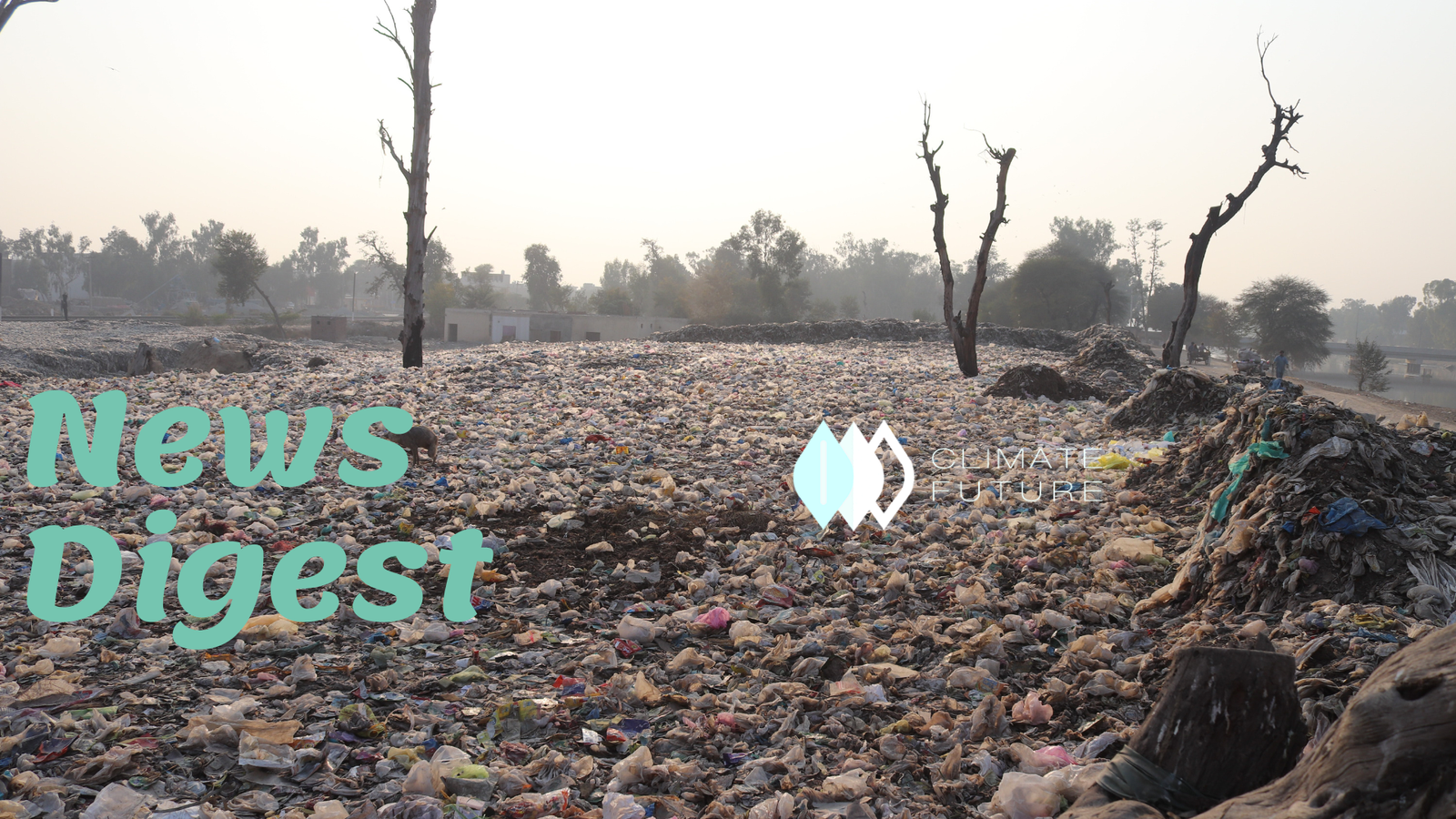Climate crisis and migration: Greta Thunberg supports IOM over ‘life and death’ issue

According to IOM, 20 million people are displaced every year due to climate change and there is an urgent need to address the impacts of climate migration and prevent global environmental crises. The head of the UN migration agency IOM and Greta Thunberg, a leading climate justice activist called for immediate action to tackle the impacts of climate change on those forced to leave their homes in search of a better life. The Greta Thunberg Foundation has donated around $269,000 to support IOM’s emergency response to Pakistan’s historic floods and the crippling drought in Somalia. Climate migration cannot be dismissed and it is crucial to find solutions for people to stay and for people to move. More than 15 million people in Pakistan and Somalian need humanitarian assistance due to the recent extreme weather conditions. There is a crucial need for solidarity and co-responsibility for those populations who are suffering and threatened by climate change events.
‘Let’s all become the champions the ocean needs’ – UN chief Guterres

The Secretary-General spoke from the Ocean Science Centre Mindelo, in Sao Vincete, a state-of-the-art facility that hosts big marine scientific equipment such as electronics workshops, deep-sea robots, and cutting-edge laboratories. Since the Port opened, the same harbor has allowed many Cabo Verdeans to leave to search for a better life. Cristina Duarte, the UN Special Adviser on Africa, spoke to UN News that Cabo Verde is a 10-island chain on West Africa’s Atlantic coast, with some 99.3% of the nation’s territory being water. The Summit was an opportunity to alarm that “The ocean is livelihoods. The ocean is life and it is in trouble.” The UN chief mentioned that some 35% of global fish stocks are over-exploited, fueling is more frequent, and rising sea levels and global heating is pushing ocean temperatures to new heights. Toxic chemicals and millions of tons of plastic waste are flowing into coastal ecosystems. The UN estimated that there could be more plastic in the sea than fish by 2050. The world needs urgent action in four fundamental ways: delivering large support for developing countries, sustainable maritime industries, winning the battle against a changing climate, and deploying science, innovation, and technology on an unprecedented scale.
In drought-stricken Cabo Berde, UN chief finds hope for creating sustainable oasis

The lush Paul Valley is situated on the mountainous island of Santo Antao and represents an oasis in an archipelago where only 10% of the land is arable. An expert from the UN Food and Agriculture Organization (FAO) explained that they were in the middle of an experimental garden, where the community is learning about sustainable techniques. Some of the plants growing in the garden are a new form of cassava. Experts hope that can be more resilient to the drought which has affected the country for the past five years. The initiative is beneficial for around 285 farmers and some parts of a large number of projects are led by UN agencies. In addition, it is aimed at transforming agriculture in the country to be more sustainable for the planet as a whole and feed more people. One of the projects the UN system has helped is the beginning of an Association of Producers in this valley. From the year 2021-2022, the producers sold all bananas, which were largely consumed by the schools of the islands of Sao Vicente and Santo Antao. The initiative reached 20,000 students. In the future, around 90,000 students, almost 20% of the country’s population, are expected to be supplied.
Cabo Verde ‘on the frontlines of the climate crisis, says Guterres ahead of Ocean Summit

UN Photo/Mark Garten
The Secretary-General called the blue economy, a primary opportunity to promote sustainable development in the archipelago and said that the UN is looking forward to working with its government and people to transform the ambition into reality. In the last five years, Cabo Verde has held an Ocean Week yearly by partnering with the Ocean Race to hold a summit. That features speakers from around the world, including the Secretary-General. The loss of biodiversity and ecosystems with sea level rise poses existential threats to the archipelago. The fishermen in the country have noticed a drop in the capture of black mackerel in the last five tears. Climate change is not only an obvious threat to the future of fishing but also to all biodiversity. Since the fishing industry and climate protection have a very clear connection, protecting a certain region can have multiple effects in other areas and everyone can be benefited. The country has shown climate leadership by highlighting the effects of changing debt into climate projects, including in the blue economy. At present, up to 20% of Cabo Verde’s energy production comes from renewable sources – one of the highest in sub-Saharan Africa. The goal is to rise renewable energy use by up to 50% by 2030.



